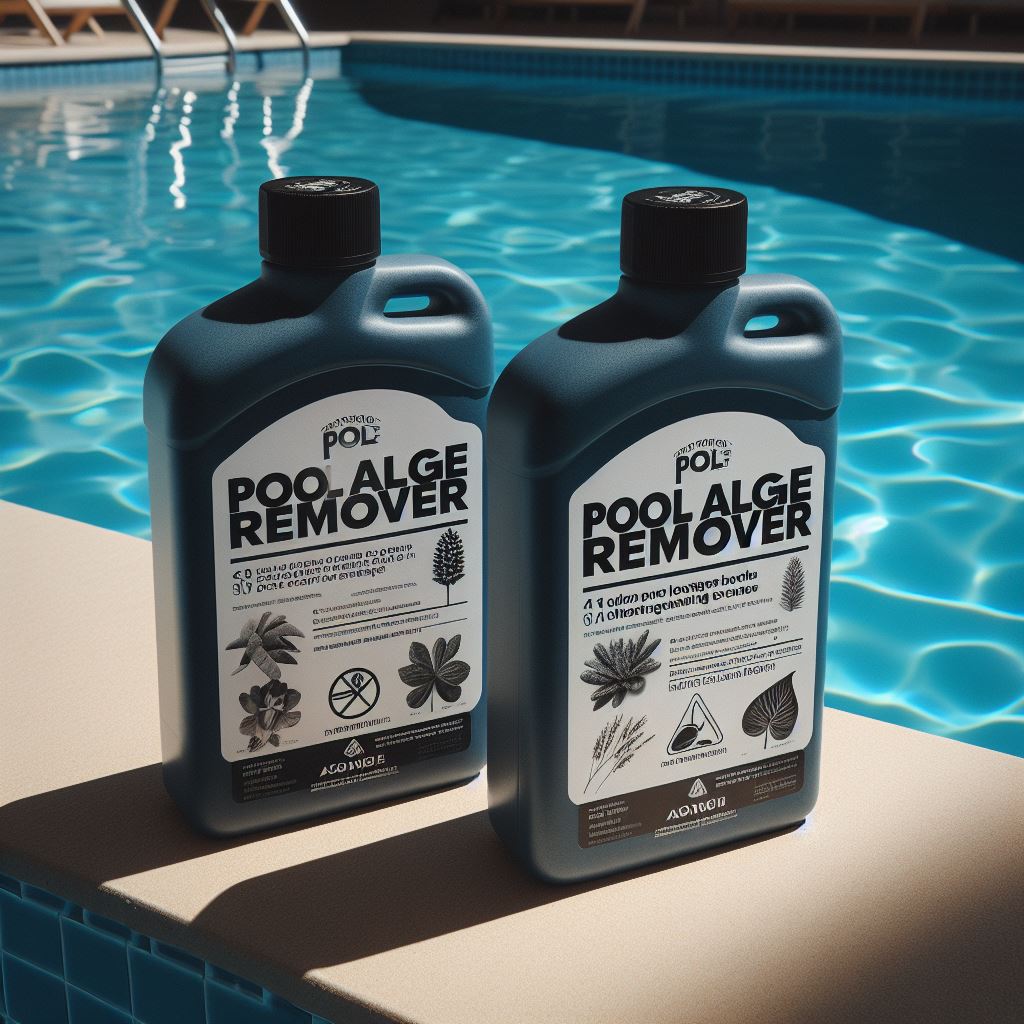Pool algaecides play a crucial role in maintaining clear and algae-free pool water. However, the efficacy of these algaecides can be influenced by various factors, including exposure to sunlight. This article explores the effects of sun exposure on the effectiveness of pool algaecides, shedding light on the changes in algae prevention under different sunlight conditions.

Understanding Pool Algaecides
Before delving into the impact of sunlight, it’s essential to understand the role of pool algaecides. Algaecides are chemical formulations designed to prevent and control the growth of algae in swimming pools. They act as a proactive measure to maintain water clarity and prevent the development of unsightly and potentially harmful algae blooms.
Factors Influencing Algaecide Efficacy
Several factors can influence the efficacy of pool algaecides, including water chemistry, temperature, and sunlight exposure. Sunlight, in particular, can have both positive and negative effects on algaecide performance, depending on the specific conditions and formulation.
Positive Effects of Sunlight
Sunlight can have positive effects on certain types of algaecides. Some algaecides contain ingredients that are activated or enhanced in their effectiveness when exposed to sunlight. This photoactivation process can contribute to an increased potency of the algaecide, particularly in targeting specific types of algae.
Negative Effects of Sunlight
On the flip side, prolonged exposure to sunlight can lead to the degradation of certain algaecide compounds. Ultraviolet (UV) rays from the sun can break down the active ingredients in algaecides, reducing their potency over time. This degradation can compromise the algaecide’s ability to prevent and control algae growth effectively.
Impact on Algae Prevention Duration
The duration of algae prevention is a crucial aspect affected by sunlight exposure. Algaecides that are susceptible to UV degradation may have a shorter lifespan in terms of preventing algae growth. Pool owners should be aware of the potential impact of sunlight on the longevity of algaecide effectiveness and plan for appropriate reapplications as needed.
UV-Resistant Algaecide Formulations
To address the challenge of UV degradation, some algaecide formulations are designed to be UV-resistant. These formulations incorporate ingredients that are more resilient to the effects of sunlight, enhancing the algaecide’s durability and prolonging its efficacy. Pool owners can opt for UV-resistant algaecides to mitigate the negative impact of sun exposure.
Importance of Proper Dosage
Proper dosage is a critical factor in mitigating the impact of sunlight on algaecide efficacy. Ensuring that the recommended dosage is applied according to the manufacturer’s instructions helps maintain the algaecide’s potency and effectiveness. Pool owners should be diligent in following dosage guidelines to achieve optimal results.
Consideration of Sunscreen Effect
Some algaecides act as a type of “sunscreen” for the pool water. They form a protective barrier that shields the water from excessive sunlight, reducing the UV exposure that contributes to algae growth. This sunscreen effect can be a valuable attribute in regions with intense sunlight and prolonged exposure.
Monitoring and Adjustments
Regular monitoring of pool water conditions, including sunlight exposure, allows pool owners to make necessary adjustments to algaecide treatment plans. Adjusting the dosage or choosing formulations based on the pool’s specific sunlight conditions can help optimize algae prevention strategies.
Combination with Other Preventive Measures
While algaecides play a crucial role, combining their use with other preventive measures enhances overall algae control. Proper pool circulation, filtration, and regular cleaning are complementary practices that, when combined with algaecide treatments, create a comprehensive approach to algae prevention.
Conclusion
In conclusion, the impact of sun exposure on the efficacy of pool algaecides is a multifaceted consideration. While sunlight can have both positive and negative effects on algaecide performance, pool owners can take proactive steps to mitigate potential challenges. Opting for UV-resistant algaecide formulations, maintaining proper dosage, considering the sunscreen effect, and combining treatments with other preventive measures contribute to effective algae prevention, even under varying sunlight conditions. By understanding and addressing the impact of sunlight on algaecides, pool owners can ensure clear, inviting, and algae-free pool water throughout the swimming season.

 Instant
Quote
Instant
Quote Email
Us
Email
Us